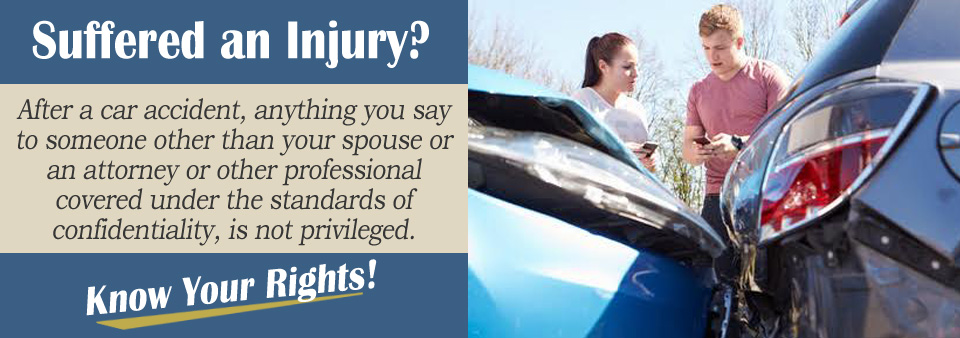Not everyone thinks clearly after an accident. In fact, pretty much no one is thinking clearly following a car accident, and who can blame them? You may say something that, under normal circumstances, you would never say, and that includes an apology.
However, if that apology comes out to the other driver, and you are by no means at fault, that brief statement could come back to bite you in the end.
We have asked attorney Alaina Sullivan about what you should do. Here is what she had to say:
Be Cautious in What You Say
Generally speaking, after an accident, it is important you choose your words wisely, especially when it comes to fault for the accident. You never know what statements could later be used against you. You also never know whether the other driver will use statements made against you in court should you be contesting fault.
Just because he or she seems pleasant and understanding at the time it happened does not mean he or she will not be looking after his or her best interests later, and that includes using your own statements to protect those interests. It is best to just say as little as necessary, provide the information needed and to let the professionals determine fault.
Statement Against Interest
Anything you say to someone other than your spouse or an attorney or other professional covered under the standards of confidentiality, is not privileged. This means that those statements can be used against you. Certain statements are considered to be statements against interest, and those can be used as admissions of guilt during court proceedings.
Stating something that another person told you can be considered hearsay. However, certain exceptions exist when it comes to the hearsay rule and excluding evidence from being admitted. A statement against interest is considered as something a party states that would be against his or her best interests in court.
It is an exception to the hearsay admissibility rules. Therefore, if you told a paramedic, police officer or the other driver that you were sorry and that the accident was your fault, that statement will likely be considered a “statement against interest” and can be used against you.

Can It Be Excluded?
It is possible you can get those statements excluded or at least mitigated. Your statement is not going to be the only item admitted into evidence. The claims adjuster will be making an investigation, and if he or she finds that the other car was at fault, and if the police report shows the same, your small statement might not mean much in the grand scheme of things.
Further, if it can be shown that you felt pressured to apologize or you made that statement in duress and otherwise would not have made it had the situation not happened the way it did you may be able to get the statement excluded. It might not be easy, but it certainly is doable.
Contact an Attorney Today
If you are the victim of a car accident, it is always recommended you speak with an attorney to discuss your case. A licensed personal injury attorney will be able to evaluate your case and determine if you have a claim against the other party’s insurance company.
To receive the compensation for your medical bills, property damages, and pain and suffering, you should speak with a personal injury attorney in your area today.